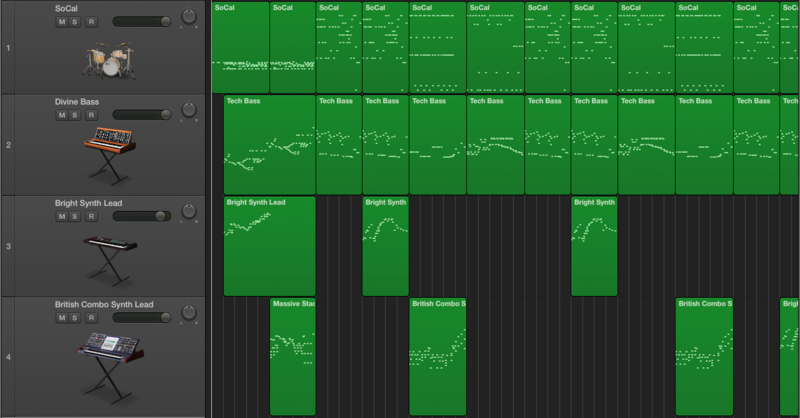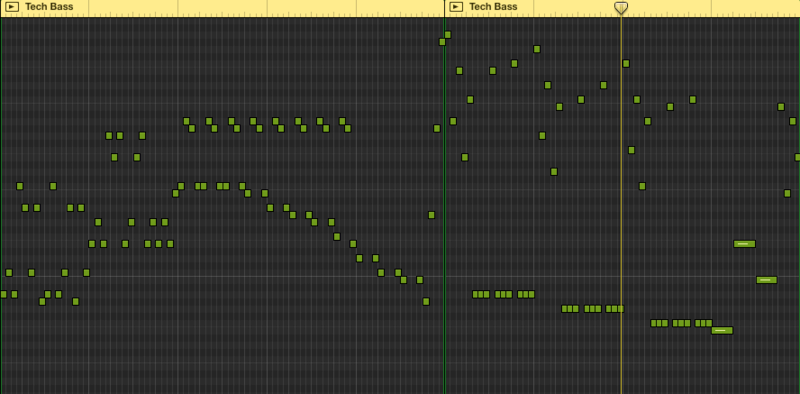Hello, William Patterson here.
How Do I Become A Video Game Composer?
www.musicianeer.com
Thank you for the reply and insight. Sorry to inundate you, but I had some more questions, if you don’t mind.
You break into games by working on games, you work on games by connecting to people who need you to work on their game.
How/where do I find anyone who will be willing to let me work on a game for pay (or even for free) to get my name farther than it is now? Which, admittedly, is nowhere.
What makes this your "best midi" composition?
It is simple with evolving shades and repeats well, I can listen to it for an hour without going crazy. I could visualize it as one level. It paints a picture in my mind. The progressions harmonically, melodically and rhythmically are sound and I just like the way it sounds.
Why do you distinguish MIDI and non MIDI compositions?
Please explain further or simplify. I apologize if that sounds dumb.
Re: Commercial Appeal
Many games are business endeavors, when someone spends 2-4 years of their life developing a piece of artwork they often times want commercial success to be a part of that Return on Investment--the larger picture is that video games is an industry, a commercial industry. If you want to engage that industry, you need to reconcile your feelings about commercial appeal.
Understanding how your audience will receive and perceive your work is absolutely vital when working in a collaboration. When you're writing music to accompany another artistic medium (visual, interactive, etc.), you need to have full appreciation for how your work will SERVE the end goals of the total project and the experience the user is meant to have when playing the game.
This requires artistic empathy.
Commercial appeal is built upon this foundation because it inherently cares whether or not the audience will be entertained by the work.
==============
Re: Understanding what MIDI is
MIDI is not a sound, it is not an aesthetic, it is not a style or genre, it is a communications protocol designed to communicate real-time (or stored) musical performance data to electronic devices and software.
It is instrument instructions.
I often find myself programming virtual instruments with the intention of relaying an acoustic or natural performance through MIDI. Other times, I will use MIDI to control synthetic sounding instruments. MIDI is just a means to control instrument performance.
When you say MIDI composition, I suspect that you are saying that you have written music that is specifically meant to sound 20 years old, as if a MIDI file was played back on a mid-to-late 90s computer sound card, a Super Nintendo, or a Sony PlayStation (1). This expression is often employed by non-musicians because they have a limited association with MIDI relating to downloading, sharing, and playing small music files in the 90's, dial-up version of the Internet. That's why I asked, I didn't know how you meant it.
To the modern music producer, MIDI is just a means to further enhance the music production process, a tool that empowers music makers to control incredible software synthesizers and virtual acoustic instruments or even to modulate effects for recorded and streaming audio.
With regards to music production, there are several paths you can embark on to improve your music production skills. But that isn't 100% meaningful when working on games because what if some game designer out there likes your work as it is? I can't say that there isn't, so that's not even what it's about.
That segways to part 3:
================================
Re: Networking
There are probably a lot of websites out there who can help you network with game makers in your area--the first one you should look at is meetup.com. You can also look at the International Game Developers Association to see if there is a local chapter in your area. You can also go to events like GDC, PAX, and just about any place you THINK game makers would go. With that said, if you live in some remote location where there are few to none game developers, you're going to have to travel.
Be yourself, be honest, and understand that if you don't like the kind of music people want, then you'll probably be happier just making your music and that's okay. Don't treat games like it's a placement option because you feel like your music is "game-like." There's no such thing as "game-like" because games can have any kind of music they want.
Check out the following fantastic game soundtracks:
Bastion OST:
Guilty Gear Xrd OST:
Ori and the Blind Forest OST:
Journey OST:
There's no bar or standard of production or musical skill or even commercial appeal--it's a big-huge messy world out there and there's an artistic niche for every niche artist. There isn't a career for everyone, there isn't necessarily a job or paying gig for everyone, but there's room for everyone.
www.musicianeer.com
Thank you once again.
If I wasn't clear about what kind of midi I was referring to before, I was referring to the kind you operate in a modern DAW using the grid system. I transitioned from Guitar Pro 6 using strictly notation originally. Here is a picture of a song I am not all too worried about being taken (as I'm sure it won't be, don't think anybody cares that much), but just to be clear on what kind of midi I am referring to. Standard midi notation.


I've been crunching so, honestly, I have only skimmed this thread. Becoming a game composer is easier than ever in that more and more people are making games/apps whereas before iOS/Android/etc the bar of entry was much higher. I would read up on as much as you can about the art of making game music as well as the business side of working in games (many people forget this aspect of it).
Start putting yourself out there, working for small(er) teams and projects. This is where you can cut your teeth, make some mistakes, learn some better workflow ideas and make some relationships. Nobody expects you to be perfect they just expect you to try really hard. Or... I should say, most people don't expect perfection when you're starting out. If you're applying to something like Blizzard first thing... well, they DO expect quite a bit!
Also realize that being a freelance composer/game audio guy (or gal!) encompasses many things including being your own PR/IT/accounting/legal/manager person. All in one! I started one day after reading two books (The Fat Man on Game Audio and Aaron Mark's Complete Guide to Game Audio) and having played around with electronic music for five years. I simply made a website, put up some demo reel material and made myself known to the industry. It took a lot of time, some mistakes, a dash of luck and lots of hard work and focus.
Dan (a good friend of mine) probably said most of this because he's awesome! But if he didn't, there ya go!
Best of luck!
Nate
Nathan Madsen
Nate (AT) MadsenStudios (DOT) Com
Composer-Sound Designer
Madsen Studios
Austin, TX
And remember the only thing that matters is how good your audio sounds! Don't get sucked into the "I have to get THIS piece of gear" or "use this type of plug-in" kind of quests or debates. The better you understand your gear the better your odds of making great audio. And learn as much as you can about game audio tech (Wwise, Fmod, Xact, XML, ActionScript, etc). You may not have to ever actually code but the more you can understand how a programmer has to put things together, the better.
Nathan Madsen
Nate (AT) MadsenStudios (DOT) Com
Composer-Sound Designer
Madsen Studios
Austin, TX







